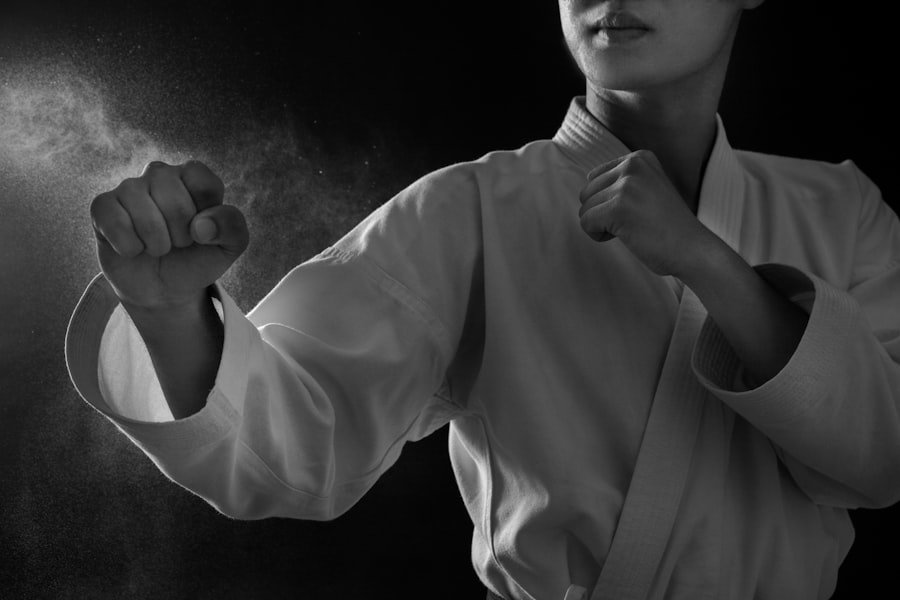Discipline is a multifaceted concept that transcends mere obedience or adherence to rules. It embodies the ability to control oneself, to persist in the face of challenges, and to pursue goals with unwavering commitment. In various aspects of life, discipline serves as a cornerstone for success, whether in personal development, professional achievements, or the pursuit of hobbies.
The essence of discipline lies in its capacity to shape character, instil resilience, and foster a sense of purpose. As we delve into the realms of physical and mental discipline, we uncover how these two dimensions intertwine and contribute to mastery in diverse fields, such as martial arts and language learning. The exploration of discipline is particularly relevant in today’s fast-paced world, where distractions abound and instant gratification often takes precedence over long-term goals.
In this context, understanding the significance of discipline becomes paramount. It is not merely about adhering to a set of rules; rather, it is about cultivating a mindset that embraces perseverance and dedication. This article will examine the practice of martial arts as a means of developing physical discipline, the challenges and rewards of learning a new language like Mandarin, and how these experiences can collectively enhance one’s personal growth and development. Spaces are filling up fast! Register for Chinese classes at the LC Chinese School in Oslo today.
Table of Contents
ToggleSummary
- Discipline in martial arts involves physical training and mental focus
- Martial arts can cultivate physical discipline and improve overall fitness
- Learning a new language requires mental discipline and dedication
- The intersection of physical and mental discipline is evident in martial arts and language learning
- Discipline plays a crucial role in achieving mastery in martial arts and language learning
The Practice of Martial Arts: Cultivating Physical Discipline
Martial arts have long been revered not only as a means of self-defence but also as a profound practice that cultivates physical discipline. Engaging in martial arts requires rigorous training, where practitioners must adhere to a structured regimen that demands both physical exertion and mental focus. The repetitive nature of drills, forms, and sparring sessions instils a sense of routine that is essential for mastering techniques.
This commitment to practice fosters an understanding of the body’s capabilities and limitations, encouraging individuals to push beyond their perceived boundaries. Moreover, martial arts training often emphasises the importance of respect and humility. Students learn to honour their instructors, fellow practitioners, and the traditions of the art form itself.
This respect is not merely a formality; it is an integral part of developing discipline. By recognising the value of hard work and dedication in others, practitioners cultivate an appreciation for their own journey. The physical discipline acquired through martial arts extends beyond the dojo; it permeates daily life, influencing how individuals approach challenges and setbacks.
The Benefits of Physical Discipline in Martial Arts

The benefits of cultivating physical discipline through martial arts are manifold. Firstly, regular training enhances physical fitness, improving strength, flexibility, and endurance. As practitioners engage in rigorous workouts, they develop not only their bodies but also their mental fortitude.
The challenges faced during training—be it mastering a difficult technique or enduring a tough sparring session—serve as valuable lessons in resilience. Each obstacle overcome reinforces the belief that persistence leads to progress. Additionally, martial arts provide a unique avenue for stress relief.
The focus required during training allows individuals to momentarily set aside their worries and immerse themselves in the present moment. This meditative aspect of martial arts can lead to improved mental clarity and emotional stability. As practitioners learn to channel their energy into productive outlets, they often find themselves better equipped to handle life’s pressures outside the dojo.
Thus, the physical discipline cultivated through martial arts not only enhances one’s physical capabilities but also contributes to overall well-being.
Transitioning to Mental Discipline: Learning Mandarin in Oslo
While physical discipline is essential in martial arts, mental discipline plays an equally crucial role in other pursuits, such as learning a new language. In Oslo, where cultural diversity thrives, many individuals are drawn to learning Mandarin—a language rich in history and complexity. The journey of mastering Mandarin requires a significant investment of time and effort, demanding a level of mental discipline that can be both challenging and rewarding.
Learning Mandarin involves grappling with its unique tonal system, intricate characters, and grammatical structures that differ markedly from those of Western languages. This complexity necessitates consistent practice and a willingness to embrace mistakes as part of the learning process. Just as martial artists must refine their techniques through repetition, language learners must engage in regular study sessions to internalise vocabulary and grammar rules.
The commitment to this practice fosters mental resilience and adaptability—qualities that are invaluable not only in language acquisition but also in various aspects of life.
The Challenges and Rewards of Learning a New Language
The path to fluency in Mandarin is fraught with challenges that test one’s resolve. From mastering pronunciation to understanding cultural nuances, learners often encounter moments of frustration and self-doubt. However, these challenges are integral to the learning process; they serve as opportunities for growth and self-discovery.
Each hurdle overcome—be it successfully conversing with a native speaker or deciphering a complex text—brings with it a sense of accomplishment that reinforces one’s commitment to the journey. Moreover, the rewards of learning Mandarin extend far beyond linguistic proficiency. Engaging with a new language opens doors to understanding different cultures and perspectives.
It fosters connections with individuals from diverse backgrounds and enriches one’s worldview. As learners immerse themselves in Mandarin-speaking environments—be it through classes at institutions like the LC Chinese School in Oslo or through cultural exchanges—they gain insights that transcend mere vocabulary. This cultural immersion enhances empathy and broadens horizons, making the effort invested in language learning all the more worthwhile.
The Mental Discipline Required for Language Learning

The mental discipline required for language learning is akin to that cultivated through martial arts training. Both pursuits demand focus, patience, and a willingness to embrace discomfort. Language learners must develop strategies for retaining information, such as employing mnemonic devices or engaging in conversation practice with peers.
This proactive approach mirrors the mindset of martial artists who continually seek improvement through feedback and self-reflection. Furthermore, language learning often involves setting specific goals—whether it be achieving conversational fluency or passing proficiency exams. These goals serve as benchmarks for progress and require sustained effort over time.
Just as martial artists train towards belt promotions or competition readiness, language learners must remain committed to their objectives despite setbacks or plateaus in progress. This shared experience highlights the importance of mental discipline in both disciplines.
The Intersection of Physical and Mental Discipline in Martial Arts and Language Learning
The intersection of physical and mental discipline becomes particularly evident when considering the holistic nature of both martial arts and language learning. While martial arts primarily emphasise physicality, the mental aspects—such as strategy, focus, and emotional regulation—are equally vital for success. Similarly, while language learning may seem predominantly cognitive, it often requires physical engagement through speaking practice and writing exercises.
In both cases, practitioners must cultivate an awareness of their bodies and minds. Martial artists learn to control their movements while remaining attuned to their thoughts and emotions during sparring sessions. Language learners must also navigate their physical responses—such as anxiety when speaking aloud—while striving for clarity in communication.
This interplay between physicality and cognition underscores the interconnectedness of discipline across different domains.
The Role of Discipline in Achieving Mastery in Martial Arts and Language Learning
Discipline serves as the bedrock for achieving mastery in both martial arts and language learning. Mastery is not an endpoint but rather a continuous journey marked by incremental progress and lifelong learning. In martial arts, achieving higher ranks requires dedication to refining techniques, understanding underlying principles, and embracing feedback from instructors.
Similarly, mastering a language involves ongoing practice, exposure to diverse contexts, and an openness to learning from mistakes. Both disciplines also highlight the importance of mentorship and community support. In martial arts schools like those found throughout Oslo, students benefit from experienced instructors who guide them on their journey towards mastery.
Likewise, language learners at institutions such as the LC Chinese School find themselves surrounded by supportive peers and knowledgeable teachers who facilitate their growth. This sense of community fosters accountability and motivation—essential components for maintaining discipline over time.
Cultivating Discipline in Everyday Life: Applying Lessons from Martial Arts and Language Learning
The lessons learned from martial arts training and language learning extend far beyond the dojo or classroom; they can be applied to everyday life in meaningful ways. The discipline cultivated through these practices encourages individuals to approach challenges with resilience and determination. Whether tackling work-related projects or personal goals, the ability to remain focused amidst distractions becomes invaluable.
Moreover, the principles of respect and humility learned in martial arts can enhance interpersonal relationships outside these disciplines. By recognising the value of collaboration and support within a community—be it among fellow practitioners or language learners—individuals can foster deeper connections with others. This sense of camaraderie reinforces the idea that discipline is not solely an individual pursuit; it thrives within supportive environments where individuals uplift one another.
The Impact of Discipline on Personal Growth and Development
Ultimately, the impact of discipline on personal growth cannot be overstated. Through the rigorous practice of martial arts or the challenging journey of language learning, individuals develop qualities such as perseverance, adaptability, and self-awareness. These attributes contribute not only to success within specific disciplines but also enhance overall life satisfaction.
As individuals embrace discipline as a guiding principle in their lives, they often find themselves more equipped to navigate challenges with confidence. The ability to set goals, remain committed despite setbacks, and celebrate progress fosters a sense of fulfilment that transcends achievements alone. In this way, discipline becomes a catalyst for personal transformation—a powerful force that propels individuals towards their aspirations.
Embracing Discipline for a Fulfilling Life
In conclusion, embracing discipline is essential for leading a fulfilling life marked by growth and achievement. Whether through the physical rigours of martial arts or the intellectual challenges of learning a new language like Mandarin at institutions such as the LC Chinese School in Oslo, individuals can cultivate resilience and determination that serve them well beyond these pursuits. The intersection of physical and mental discipline reveals profound insights into how we approach challenges across various domains.
As we navigate our journeys—whether on the mat or in the classroom—we are reminded that discipline is not merely about adherence to rules; it is about fostering a mindset that embraces perseverance and dedication. By applying lessons learned from martial arts training and language acquisition to our everyday lives, we can cultivate a sense of purpose that enriches our experiences and propels us towards our aspirations. Ultimately, embracing discipline paves the way for personal growth and development—a journey worth undertaking for anyone seeking a fulfilling life.







